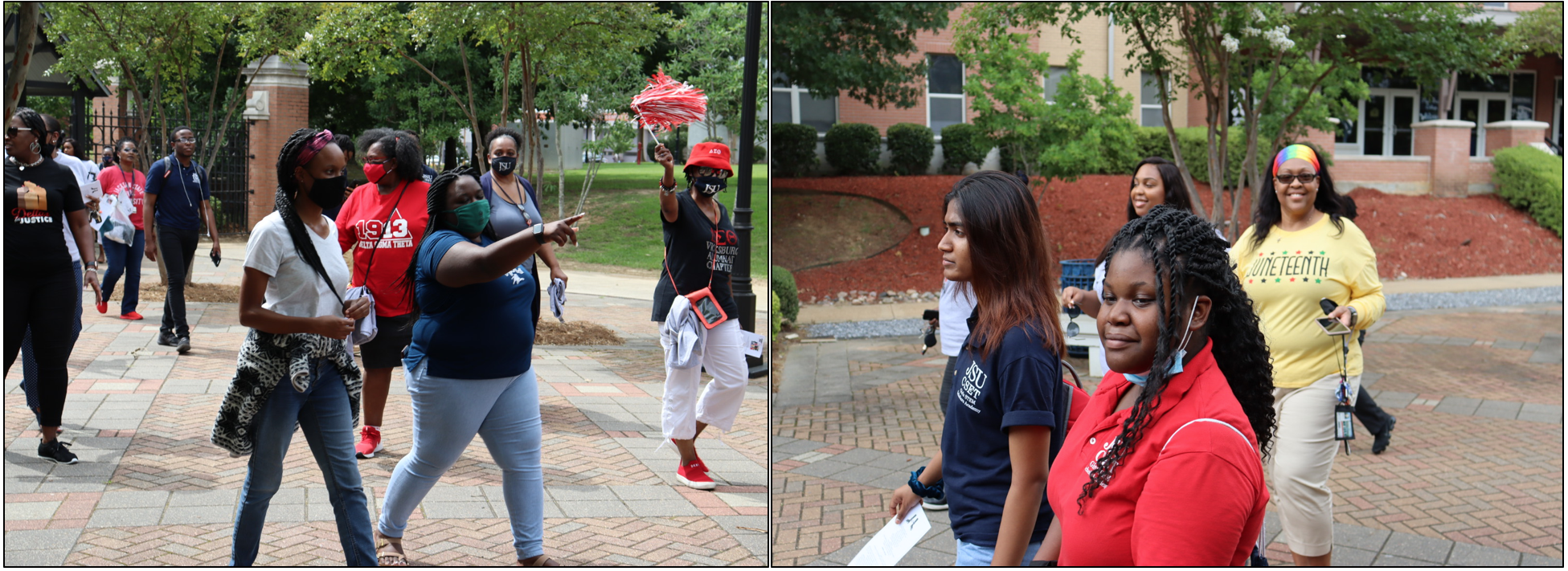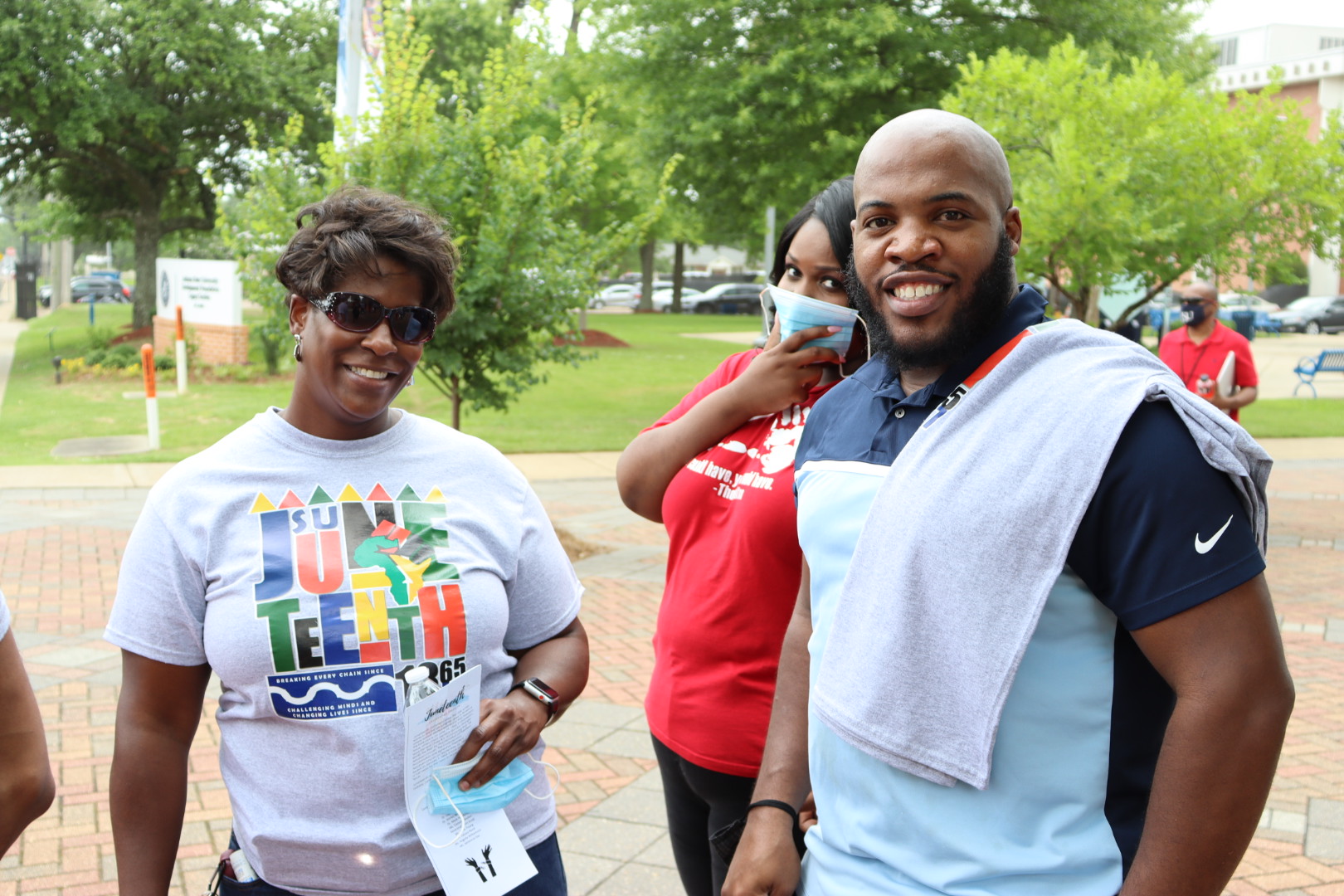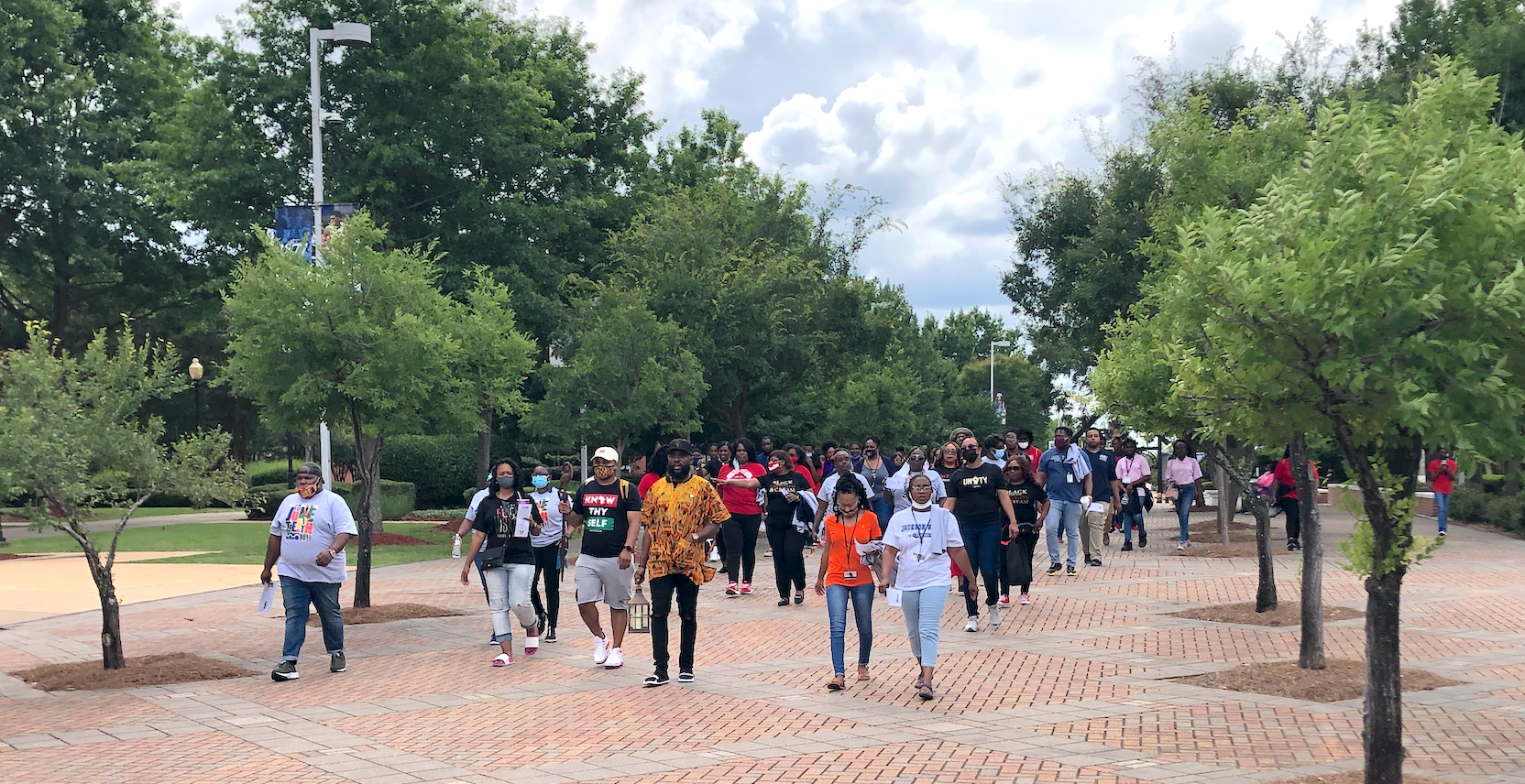
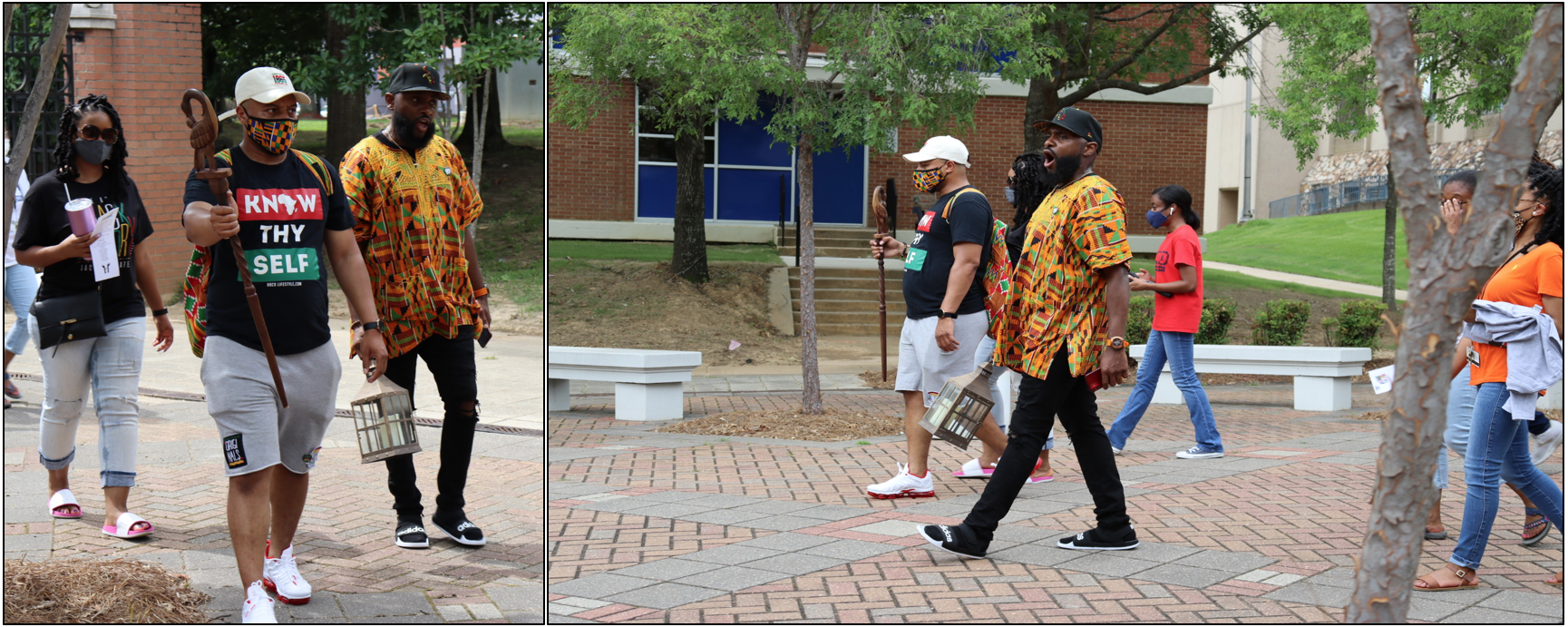
![]()
[hr]
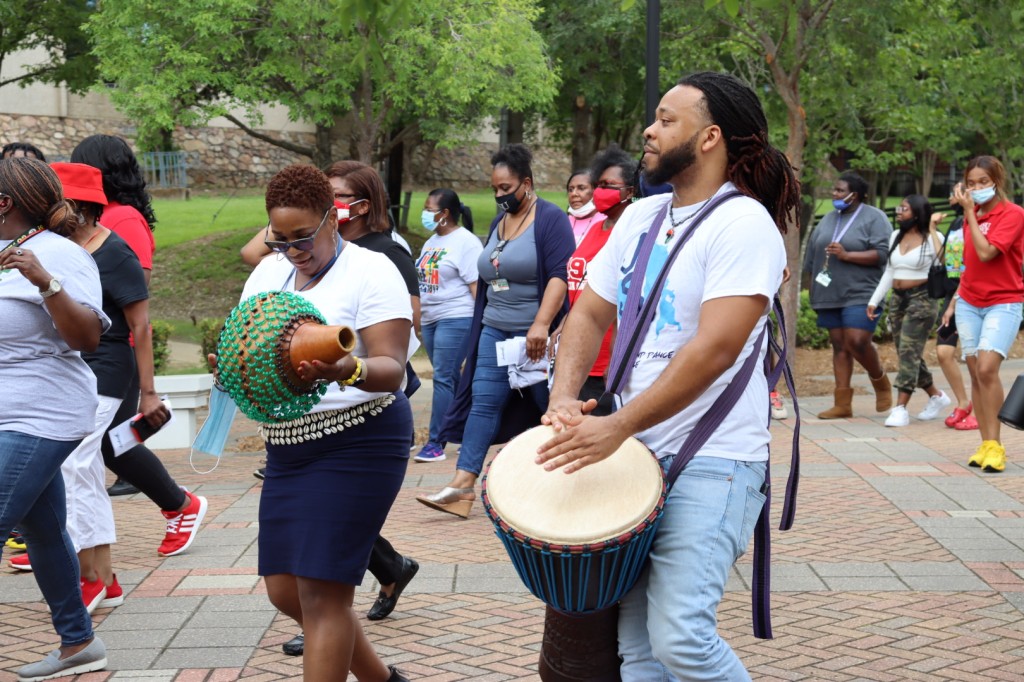
The JSU Center for Student Engagement and Leadership led more than 100 people onto the Gibbs Green Memorial Plaza for the start of a Juneteenth Commemoration Walk a day before the new federal holiday kicked off Saturday.
President Joe Biden signed a bill last Thursday marking the day in 1865 that Union troops delivered a message to enslaved Black Americans in Galveston, Texas, that the Civil War had ended.
The Rev. Kevin Kosh Jr., campus pastor and director of the JSU Wesley Foundation, delivered a resounding message about the origin of Juneteenth, which he said is also known as Jubilee Day, Freedom Day and Emancipation Day.
Kosh said the full story about ending slavery must be shared with descendants of those who endured hardships and horrific conditions.
“Until the lion tells its own story, the hunter will always be the hero,” said Kosh, quoting an African proverb.
Mi’Kasa Mitchell is director of JSU’s Center for Student Engagement and Leadership. Although she’s concerned about future commercialization of the new national holiday, she said, “It’s very important for all of us to celebrate this holiday. We serve a diverse population, so it’s important for everybody to know the meaning of and the history behind Juneteenth.”
Meanwhile, Kosh gave a brief history lesson about slavery and the Emancipation Proclamation, which was issued by President Abraham Lincoln on Sept. 22, 1862. It declared that on Jan 1, 1863, “all enslaved people in the states currently engaged in rebellion against the Union shall be then, thenceforward and forever free.”
However, Kosh said the decree was not enforced in the South until the end of the Civil War in 1865. “Juneteenth is about us claiming our history and celebrating our heritage. As we acknowledge the strides toward freedom made and the constant struggles for freedom still before us as a country, Juneteenth is our National Independence Day.”
#RightNowAtJSU, we’re commemorating #Juneteenth pic.twitter.com/Tpjb7xdUUZ
— Jackson State U. (@JacksonStateU) June 18, 2021
Kosh further emphasized that “Lincoln didn’t actually free any of the approximately four million men, women and children held in slavery in the United States when he signed the formal proclamation. “The document applied only to enslaved people in the Confederacy and not to those in the border states that remained loyal to the Union.”
He added, “I am grateful that this historic, long overdue day is now a national holiday. Today is a day for the campus and the nation to come together and reflect and celebrate the contributions and experiences of our ancestors in this country and the legislation that granted the freedom.”
Even so, he noted that the proclamation “marked a crucial shift in Lincoln’s views on slavery. Emancipation would redefine the Civil War, turning it from a struggle to preserve the Union to one focused on ending slavery.”
Jairus Simmons of Jackson is a statistics graduate student. He said Juneteenth “is like a memento that tells us where we were when we first came to this country and where we’re going. At first, we were in the fields. Now, we have this beautiful campus and other beautiful HBCU campuses throughout this nation as well.”
“Swing low, sweet chariot…” Celebrating #Juneteenth with a commemoration walk pic.twitter.com/C035pR44ps
— Jackson State U. (@JacksonStateU) June 18, 2021
After President Biden signed a bill making Juneteenth a national holiday, Simmons said he initially was “a bit conflicted because I feared that the holiday easily could be twisted or lose its true meaning and just become a day off from work. We need to understand what Memorial Day, Labor Day, MLK and Independence Day actually mean. As part of an HBCU and as it relates to Juneteenth, I feel that it should be a requirement that every student take ‘Introduction to African Studies’ to learn their history.”
Justin Standifer is a graduating senior from Memphis who’s studying biology pre-med. He called JSU’s observance “a step in the right direction although I feel the nation is steering away from the current problems we’re having.” Still, he said that he believes JSU should make the Commemoration Walk an annual tradition. For future observances, he said he would like to see JSU involve more speakers, forums and classroom lessons about the significance of Juneteenth.
Before ending his speech, Kosh reminded the crowd that an official Juneteenth flag exists.
“The colors are red, white and blue – displaying that all American slaves and their descendants were and are Americans. Many black communities have adopted the Pan-African flag – red, black and green. Red represents the blood shed on the path toward freedom; black represents the people and their power; green represents the land; and yellow (when it’s present ) represents riches and economic prosperity,” he said.
